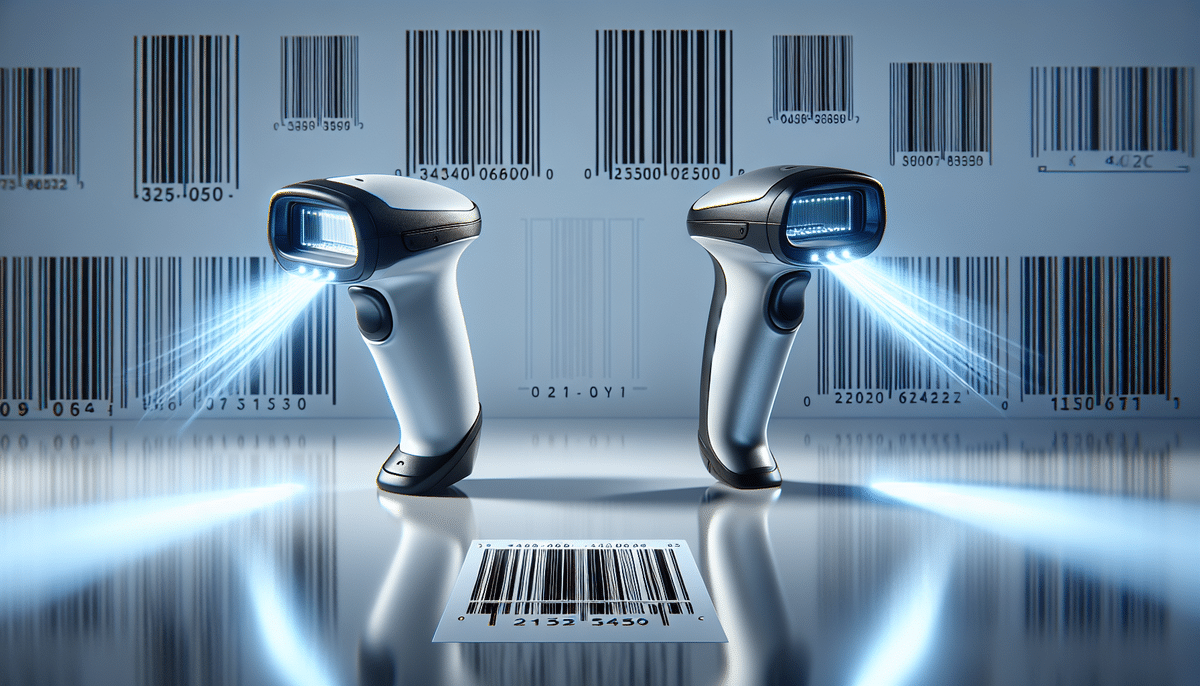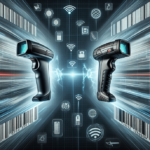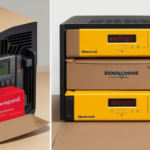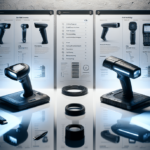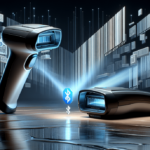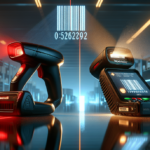Symbol LS2208 by Zebra vs Honeywell Voyager 1200g: An In-Depth Comparison
When selecting a barcode scanner for your business, the market offers a plethora of options. Two of the most sought-after models are the Symbol LS2208 by Zebra and the Honeywell Voyager 1200g. Both scanners promise exceptional performance, user-friendly interfaces, and affordability. But which one aligns best with your business needs? This article provides a comprehensive comparison of their key features, design and build quality, performance, ease of use, price, and user reviews to help you make an informed decision.
Understanding the Need for a Barcode Scanner
Before diving into the specifics of the Symbol LS2208 and Honeywell Voyager 1200g, it's essential to grasp why a barcode scanner is vital for many businesses. A barcode scanner enables the quick and accurate reading of barcodes, which are crucial for identifying products and tracking inventory. By integrating a barcode scanner into your operations, businesses can:
- Save Time: Accelerate transaction processes and inventory management.
- Reduce Errors: Minimize manual entry mistakes in data handling.
- Enhance Efficiency: Streamline workflows and improve overall productivity.
Moreover, various industries depend on barcode scanning for regulatory compliance. For instance, the healthcare sector utilizes barcode scanners to prevent medication errors, enhancing patient safety. According to a report by the HIMSS Healthcare Information and Management Systems Society, the implementation of barcode scanning has reduced medication errors in hospitals by over 50%.
Barcode scanning technology has evolved significantly since the 1970s. Modern scanners are faster, more accurate, and come in diverse forms to suit different business environments. For example, handheld scanners are perfect for retail settings where items are scanned on the go, while fixed-mount scanners are ideal for manufacturing plants with conveyor belts. Selecting the appropriate barcode scanner can streamline operations, improve accuracy, and boost your bottom line.
Key Features of Symbol LS2208 Barcode Scanner
- Barcode Compatibility: Reads both 1D and 2D barcodes.
- Scanning Technology: Utilizes laser scanning for precise readings.
- Scanning Range: Capable of scanning from up to 17 inches away.
- Durability: Built to withstand drops from up to 6 feet.
- Connectivity: USB interface compatible with Windows and Mac.
- Warranty: Comes with a five-year warranty.
- Orientation Flexibility: Scans barcodes in any orientation.
- Scanning Speed: Scans up to 100 barcodes per second.
The Symbol LS2208 barcode scanner is renowned for its versatility and durability. Its ability to read multiple barcode types and orientations makes it suitable for various business settings, from retail stores to warehouses. The five-year warranty further emphasizes its reliability and longevity.
Key Features of Honeywell Voyager 1200g Barcode Scanner
- Barcode Compatibility: Specializes in reading 1D barcodes.
- Scanning Technology: Employs linear imager technology.
- Scanning Range: Effective from up to 17 inches away.
- Patented Technology: Features CodeGate technology to ensure proper aiming.
- Durability: Can endure drops from up to 5 feet.
- Connectivity: Offers both USB and Bluetooth options.
- Warranty: Includes a three-year warranty.
- Ergonomic Design: Comfortable grip to reduce hand fatigue.
- Scanning Speed: Capable of up to 80 scans per second.
The Honeywell Voyager 1200g barcode scanner stands out with its patented CodeGate technology, which ensures users aim the scanner correctly before reading the barcode, thereby reducing accidental scans. Its ergonomic design and Bluetooth connectivity make it a preferred choice for businesses that require mobility and extended use.
Design and Build Quality Comparison
Both the Symbol LS2208 and Honeywell Voyager 1200g feature sturdy, handheld designs with comfortable grips, making them suitable for extended use. However, there are subtle differences:
- Weight: LS2208 weighs 5.2 ounces, while Voyager 1200g is lighter at 4.2 ounces.
- Scanning Technology: LS2208 uses a laser scanner, offering high accuracy for small and dense barcodes. Voyager 1200g employs an area imager, allowing it to read barcodes from any angle.
- Connectivity: LS2208 is USB-only, providing a reliable and fast connection. Voyager 1200g offers both USB and Bluetooth, enhancing its versatility for wireless operations.
Both scanners are built to withstand drops and harsh environments, with LS2208 rated at IP42 and Voyager 1200g offering IP42 and IP52 ratings depending on the model. This makes them suitable for environments where durability is paramount.
Performance Comparison
When evaluating performance, both scanners excel but in slightly different areas:
- Scanning Accuracy: LS2208's laser technology offers superior accuracy for intricate barcodes, whereas Voyager 1200g's imager is better suited for larger, less dense barcodes.
- Scanning Speed: LS2208 scans up to 100 barcodes per second, making it ideal for high-volume environments. Voyager 1200g, with 80 scans per second, still provides robust performance for most applications.
- Durability: Both scanners are highly durable, but Voyager 1200g has a slight edge with its higher drop resistance in some models.
Additionally, Voyager 1200g's CodeGate technology ensures deliberate scanning actions, reducing the likelihood of accidental scans and enhancing overall accuracy.
According to a study by Statista, businesses that implement high-speed scanners like the LS2208 can increase their transaction processing rates by up to 30%, significantly boosting operational efficiency.
Ease of Use Comparison
Both scanners are designed for user-friendly operation, but there are key differences:
- Setup: Both models offer plug-and-play connectivity via USB, compatible with most modern operating systems.
- User Interface: Voyager 1200g's CodeGate technology adds an extra layer of precision, ensuring intentional scans.
- Ergonomics: Voyager 1200g's lightweight and ergonomic design reduce hand fatigue, making it more comfortable for prolonged use compared to the LS2208's traditional design.
Overall, while both scanners are easy to use, the Honeywell Voyager 1200g offers additional features that enhance user experience, especially for businesses requiring frequent and prolonged scanning.
Price Comparison
The pricing of the Symbol LS2208 and Honeywell Voyager 1200g barcode scanners is relatively similar, positioning both as affordable options for businesses:
- Symbol LS2208: Slightly more expensive by approximately $10-$15, but compensates with a longer five-year warranty.
- Honeywell Voyager 1200g: More cost-effective upfront with a three-year warranty.
In terms of value, the LS2208 offers a higher scanning speed and a longer warranty, making it a worthwhile investment for businesses prioritizing these features. Conversely, the Voyager 1200g provides greater versatility with Bluetooth connectivity and ergonomic design at a lower initial cost.
User Reviews: Insights from Customers
Customer feedback provides valuable insights into the real-world performance and reliability of these scanners:
- Symbol LS2208: Users praise its durability and high scanning accuracy, especially for dense barcodes. However, some have reported challenges when scanning certain barcode types.
- Honeywell Voyager 1200g: Customers appreciate the ergonomic design and Bluetooth connectivity. A few users have mentioned occasional misreads related to the CodeGate technology, though these instances are rare.
Overall, both scanners receive high ratings for their ability to perform efficiently in various conditions, with customers highlighting their reliability and ease of use. The affordability of both models also makes them popular choices among small businesses and individual entrepreneurs.
Choosing the Best Barcode Scanner for Your Business
Deciding between the Symbol LS2208 and Honeywell Voyager 1200g depends on your specific business requirements:
- Accuracy Needs: If your business requires scanning of small and dense barcodes with high precision, the LS2208 is preferable.
- Flexibility and Ergonomics: For businesses that benefit from wireless connectivity and ergonomic design, the Voyager 1200g is the better choice.
- Budget Considerations: If initial cost is a significant factor and Bluetooth connectivity is desired, the Voyager 1200g offers great value.
- Warranty and Longevity: The LS2208's five-year warranty provides extended coverage, making it ideal for long-term investments.
Assessing your business's specific scanning needs, volume, and environment will guide you in selecting the most suitable barcode scanner.
Conclusion: Which Barcode Scanner Should You Choose?
Both the Symbol LS2208 and Honeywell Voyager 1200g barcode scanners are excellent choices for businesses seeking reliable and affordable scanning solutions. The LS2208 excels in accuracy and durability, backed by a five-year warranty, making it ideal for environments demanding high precision. On the other hand, the Voyager 1200g offers superior ergonomics, Bluetooth connectivity, and cost-effectiveness, catering to businesses that prioritize flexibility and user comfort.
Ultimately, the best barcode scanner for your business will align with your specific operational requirements, budget constraints, and long-term goals. By carefully evaluating the features and benefits of each model, you can make an informed decision that enhances your business's efficiency and productivity.















